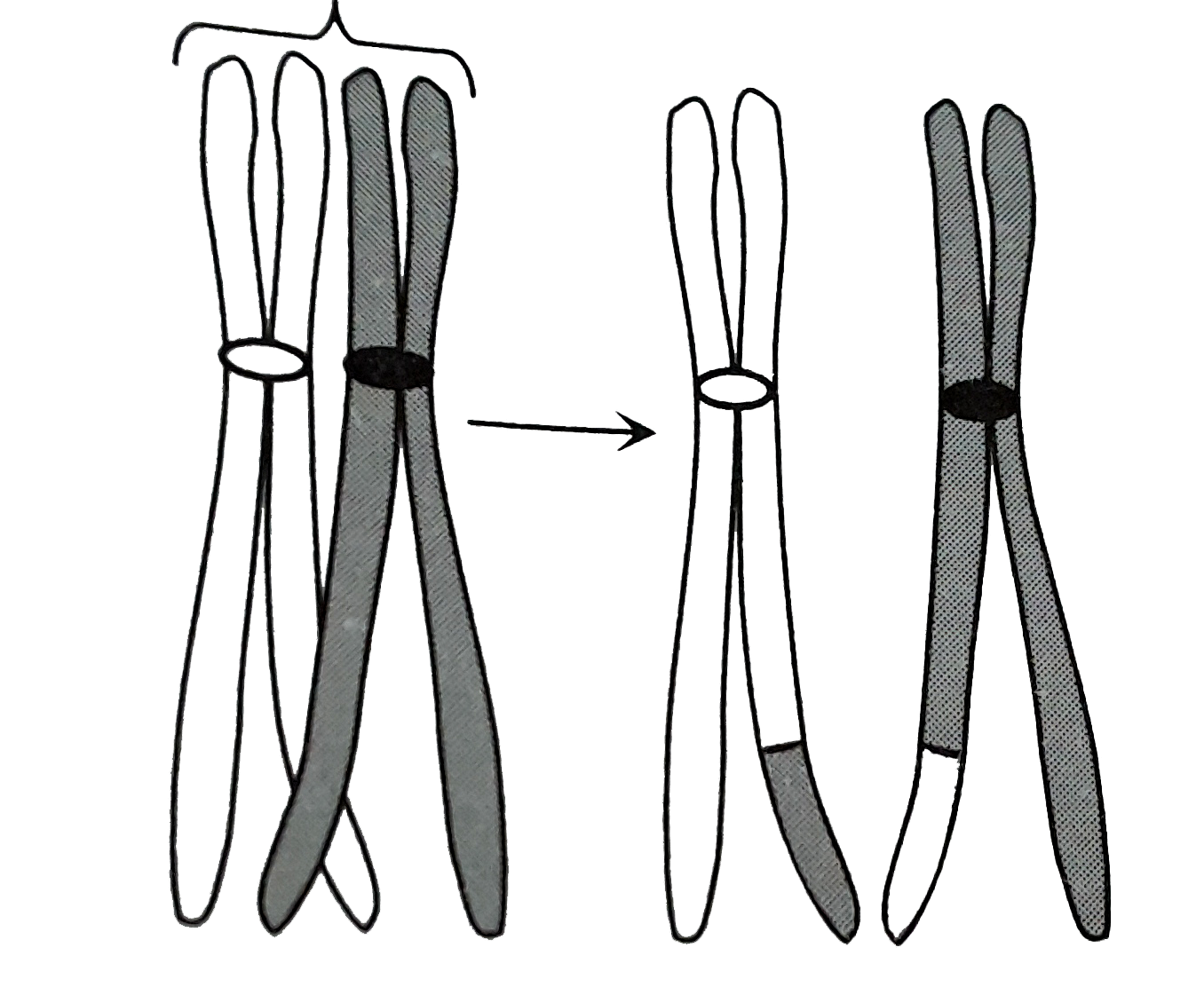When cell has stalled DNA replication fork, which checkpoint should be predominantly activated?
(1) G1/s
(2) G2/M
(3) M
(4) Both G2/M and M
Match the stage of meiosis in column I to their characteristic features in column II and select the correct option using the codes given below
| Column l | Column lI | ||
| A. | pachytene | 1 | pairing of homologous chromosomes |
| B. | Metaphase-l | 2 | Terminalisation of chiasmata |
| C. | Diakinesis | 3 | Crossing-over takes place |
| D. | Zygotene | 4 | Chromosomes align at equatorial plate |
The correct option:
| A | B | C | D | |
| 1. | 3 | 4 | 2 | 1 |
| 2. | 1 | 4 | 2 | 3 |
| 3. | 2 | 4 | 3 | 1 |
| 4. | 4 | 3 | 2 | 1 |
A cell at telophase stage is observed by a student in a plant brought from the field. He tells his teacher that his cell is not like other cells at telophase stage. There is no formation of cell plate and thus the cell is containing more number of chromosomes as compared to other dividing cells. This would result in
(1) polyploidy
(2) somaclonal variation
(3) polyteny
(4) aneuploidy
Which of the following is not a characteristic feature during mitosis in somatic cells
1. Disappearance of nucleolus
2. Chromosome movement
3. Synapsis
4. Spindle fibres
Spindle fibres attach on to
| 1. | Kinetochore of the chromosome |
| 2. | centromere of the chromosome |
| 3. | Kinetosome of the chromosome |
| 4. | telomere of the chormosome |
In meiosis crossing over is initiated at
1. leptotene
2. Zygotene
3. diplotene
4. pachytene
A somatic cell that has just completed the S-phase of its cell cycle, as compared to gamete of the same species has
| 1. | twice the number of chromosomes and twice the amount of DNA |
| 2. | same number of chromosomes but twice the amount of DNA |
| 3. | twice the number of chromosomes and four times the amount of DNA |
| 4. | four times the number of chromosomes and twice the amount of DNA |
In S-phase of the cell cycle
1. amount of DNA doubles in each cell
2. amount of DNA remains same in each cell
3. chromosome number is increased
4. amount of DNA is reduced to half in each cell
A stage in cell division is shown in the figure. Select the answer which gives correct
identification of the stage with its characteristics.
| 1. | Telophase - Nuclear envelope reforms, Golgi complex reforms |
| 2. | Late anaphase - Chromosomes move away from equatorial plate, Golgi complex not present |
| 3. | Cytokinesis - Cell plate formed, mitochondria distributed between two daughter cells |
| 4. | Telophase - Endoplasmic reticulum and nucleolus not reformed yet |
Given below is the representation of a certain event at a particular stage of a type of cell division. Which is this stage?

1. Prophase-I during meiosis
2. Prophase-II during meiosis
3. Prophase of mitosis
4. Both prophase and metaphase of mitosis







